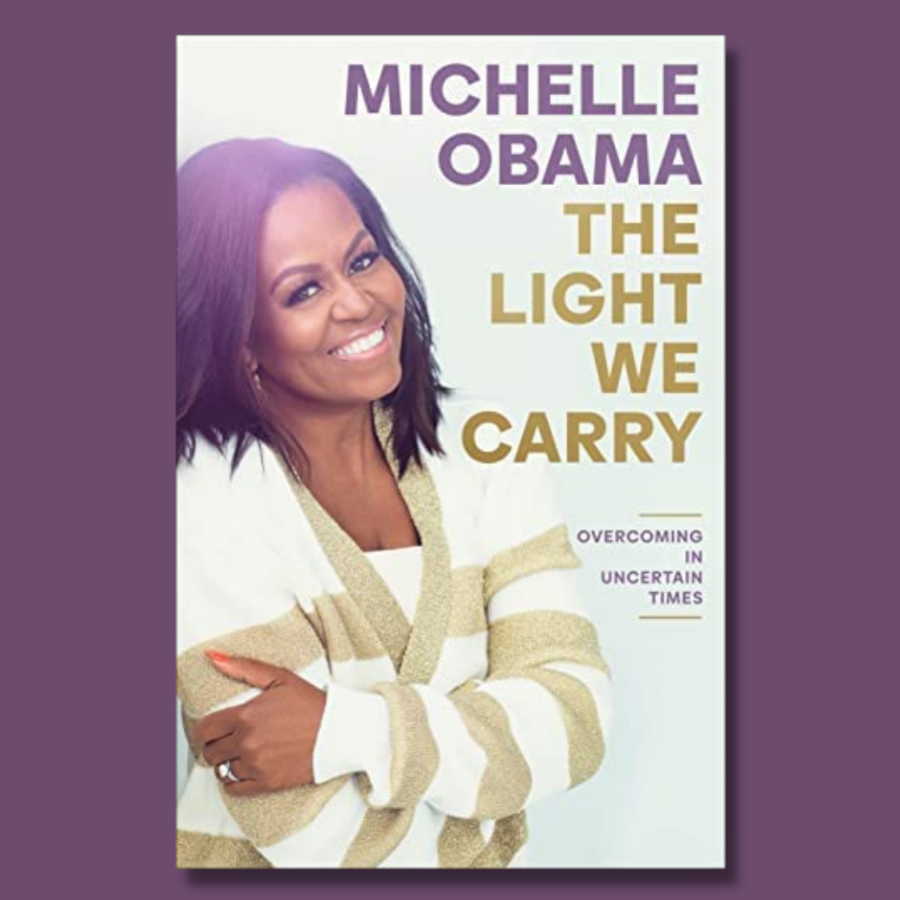This post may include affiliate links, which means we make a small commission on any sales. This commission helps Feminist Book Club pay our contributors, so thanks for supporting small, independent media!
The Light We Carry: Overcoming in Uncertain Times by Michelle Obama had all the makings to become a bestseller just like her previous memoir, Becoming. I enjoy Michelle Obama’s writing. I feel like she writes from such a positive perspective that appeals to a wide range of readers. She is a light for sure!
I adore the Obamas and what they represent to Black people. I want to talk about my feelings about The Light We Carry and its deeper implications for Black people.
This is not toxic positivity…
I was so afraid that this book was going to be full of toxic positivity. Sometimes I can’t go high when they go low (I’m still healing). But the more balanced approach pleasantly surprised me. Michelle Obama validated and acknowledged the difficulty of oppression (which I was honestly most surprised she mentioned this at all) and centered the experiences of voices who will reach the lives of people who normally wouldn’t notice or care about them at all.
I also felt like this book was an opportunity for her to humanize herself and her experiences. Michelle Obama has faced so much pressure and scrutiny as the first Black First Lady; she always had to present herself perfectly just to receive half of the criticism. But now since she is a public figure more on her own terms and not connected to a current president, she can be more vulnerable and show different sides of her life that aren’t always sunshine and rainbows.
But it is respectability
However, the Obamas place a certain pressure on Black people, and it is called respectability. Evelyn Brooks Higginbotham first used the term in the manner in which I am using it in her book Righteous Discontent: The Women’s Movement in the Black Baptist Church, 1880-1920. Respectability is the notion that oppressed people will gain power in society if they strictly uphold the rules of what is deemed respectable by those in power. Much of this is BIPOC individuals policing each others’ behavior through the tenants of white supremacy.
Barak has been more vocal about sanitizing Black people’s behavior than Michelle. However, creating a brand all about being the light and going high (although not necessarily directed at just BIPOC or Black people specifically) dismisses the real, healthy, justified, and necessary anger of so many oppressed people. Again, sometimes I can’t always go high when they go low.
Having the Obamas, especially Michelle, as such a public example Black excellence is something I am so grateful for as a Black woman. But when they are the standard both Black people and white people use that all Black people should aspire to, this can be harmful. Respectability creates this lie that being nice, having a degree, and speaking “proper English” will save you. (If you want to read more about this, Jacquelyn talks about how respectability politics undermines Black resistance.) Michelle Obama is the classiest woman I have ever seen in my lifetime and they still called her an ape.
I enjoyed this book way more than I thought. It is definitely worth the read. But put that same energy into reading books by Black women who are loud, messy, twerk, and still eloquently talk about their experiences.


